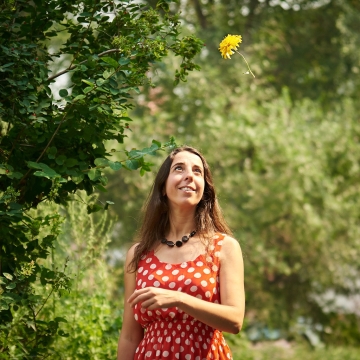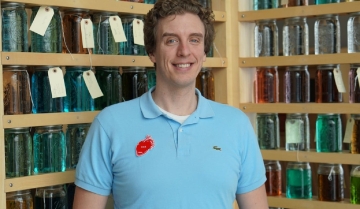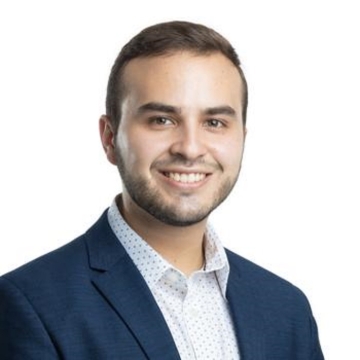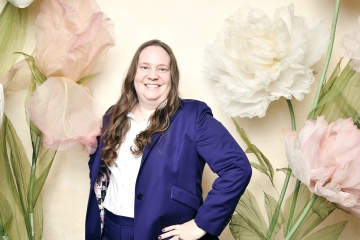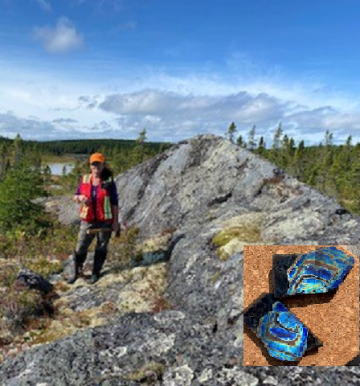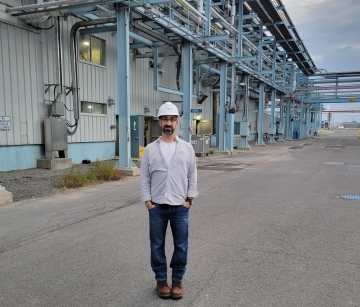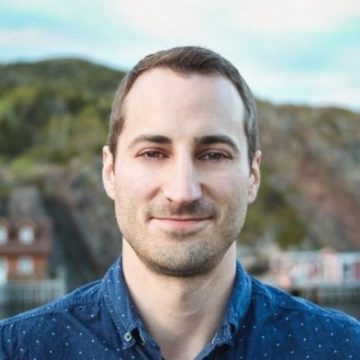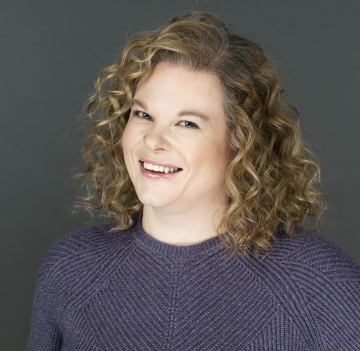Michael Loder
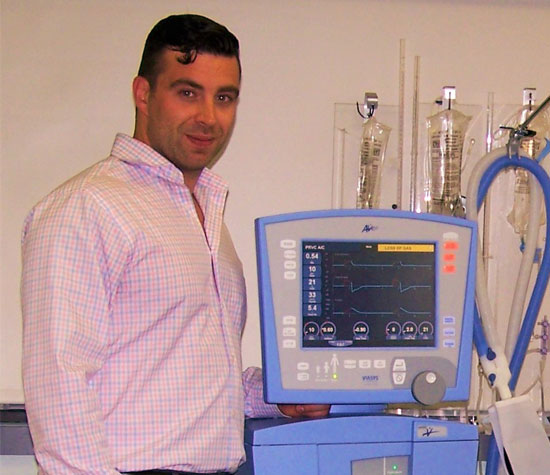

About me
I was born/grew up in: St. Anthony, NL
I now live in: St. John’s, NL
I completed my training/education at: College of North Atlantic, Ridge Road Campus
What I do at work
My General Manager duties involve the day to day running of our office. I meet with prospective clients to describe our services. I engage in a lot of decision making that is normally around the taking on of new projects. We engage in a risk-reward analysis for every job or project we bid on. If the risks to our company are small or if we can minimize those risks then we will take on the project. As a small growing company we want to ensure the financial rewards are worth the time and effort we have to put into a job. I also keep our finances in order.
When I am working on the various biomedical equipment there is a lot of problem solving involved. All repairs involve trouble shooting and diagnosing the problems. Once the problem is known we work out the solution to that issue. I use my STEM background on a daily basis. The majority of the biomedical equipment we work on involves a lot of complicated electronics so you need to know the basics so you can understand how it works and then figure out why it is not working properly. All the different types of technology used in making images of the body involve lots of math.
I find that my grade 11 and 12 biology comes in very handy when working on different equipment. The knowledge I have from these courses help me understand the language of the medical professionals who use the machines. You need to have an understanding of how the body works to really understand how the equipment works when it is hooked up to a patient.
My career path is
I always enjoyed taking things apart and working with my hands. I always wanted to work in a hospital-type environment but did not want to be a doctor or nurse. My father worked in the biomedical engineering dept. at the hospital in my home town so I had an idea of what was involved so I enrolled in the biomedical engineering diploma at the College of the North Atlantic. The program was very intense and required a lot of work but I enjoyed it and graduated with my diploma in 2008.
After graduation I worked for a time in laboratory settings at Memorial University before taking on a job with the regional health board. I spent four years working for a medical device company out of Germany. Here I received specialized training that provided me with skills and knowledge that let me expand to other areas. This is the normal career path for biomedical engineering technicians. First you get an entry level job working on simple devices that help you refine your knowledge. Then you specialize in more complex equipment as your skills and knowledge level progress.
It was a major challenge to leave a secure job with a well-known and respected company. But I always wanted to run my own business so I took the plunge. I have several people working at the company and we are now looking to expand into the Atlantic Canada market. Running your own business takes a lot of energy as you have a huge learning curve. You have to do everything from finding work to keeping accurate books to paying the people who work for you. But it’s great!
I am motivated by
Right now the challenges in growing my company are a real motivation! I enjoy being my own boss. And I enjoy the fact that my company is able to provide local services at competitive prices. I like the fact that I am providing other small businesses with the same level and quality of service that is normally only available in larger centers.
How I affect peoples’ lives
A biomedical technician works on every piece of technology in a hospital or clinic. This ranges from the bed a patient sleeps on to the monitors that are attached to the anesthetic machine that puts the patient to sleep before surgery. Every machine needs to be calibrated so the person using it can do their job safely. This equipment is serviced and certified at least once a year. A full service hospital will have biomedical technicians on staff. Most of my work is in clinics who do not have dedicated biomedical technicians on staff.
This includes dental offices where I would service or repair such things as dental imaging tools. I also do work on the equipment found in veterinary clinics. Veterinary clinics are really mini hospitals as they have many of the same diagnostic and surgical technology as you would find in a hospital. I feel good knowing that my work helps make sure patients, human or animal, receive the best care their health provider can give them.
Outside of work I
For the past 9 or 10 years I’ve been a competitive powerlifter. I train regularly and compete at provincial, national and international tournaments. I have competed all across Canada. In 2009 I traveled to Brazil for the World Powerlifting Championships. Before I started my business I volunteered with the Boys & Girls Club and the provincial powerlifting association.
My advice to others
Expect to work hard! And be prepared to continue your education when you graduate. In this field, when you graduate from college your learning is really just beginning! This provides you with greater skills, experience and knowledge. The more skills and knowledge you have the more career pathways open up for you. This can range from technology support, repair or sales. Consider new opportunities as they arise because you never know where they might lead.
- Art
- Business & Economics
- Foreign Languages
- Physical Education/Health
- Science
- Technology
- Enjoyed working with my hands
- Was motivated by success
- Engaged in volunteer activities
- Never wanted to be in the classroom
- Learned best "by doing"
- Liked to take things apart to see how they worked

